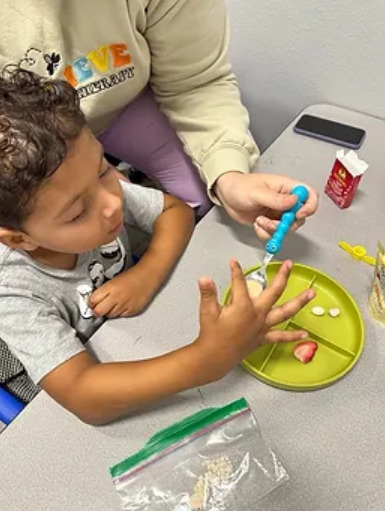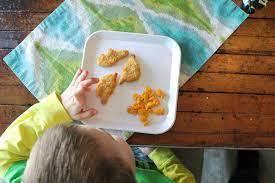#Overcoming picky eating habits
Text
How to Conquer Picky Eating for Good: 10 Surprising Tricks to Turn Your Child into a Foodie
Tackle picky eating with 10 surprising tricks to transform your child into a foodie for good. #PickyEaters #ParentingTips #HealthyEating #FoodieKids
If you have a picky eater at home, you know the daily struggles of mealtime battles and food frustration. However, there’s hope! In this guide, we’ll reveal ten surprising tricks that will help you conquer picky eating for good and transform your child into a foodie who enjoys a variety of nutritious and delicious foods. Say goodbye to food struggles and hello to a more harmonious dining…

View On WordPress
#Conquering picky eating for good#Encouraging adventurous eating in kids#Overcoming picky eating habits#Parenting strategies for picky eaters#Raising a food-loving child#Surprising tricks for turning your child into a foodie#Tackling picky eating in children#Tips for dealing with picky eaters#Transforming your child&039;s eating preferences#Turning mealtime battles into foodie adventures
1 note
·
View note
Note
I recently read the newest edition to your hybrid au and !!! omg !!! it was REALLY good. your work never disappoints, whether it's a drabble or a full-fledged fic !! I really admire the route you're taking for some characters and their hybrid counterparts. I can see how much thought u put into it ^o^ and otter!xingqiu is sooo cute >_< I honestly thought he was going to be a dolphin since they're intelligent, but an otter makes sm sense now that I think about it :D
I was curious about this for awhile.. but the characters have animal characteristics while in their hybrid forms, right? like ajax has his little horn, and venti has wings (?). with that being said, since scara is a bird hybrid, wouldn't mc have been able to notice hes a hybrid upon first meeting him? since I assume his wings would be present? and could you possible give a further visual for ayato ;; you mentioned he had a fin, but does he also have legs? or is it like a fin coming off from his spine? (does that make sense ;;)
OH ALSO :3 do they inhabit little animal habits, like does aether purr in his hybrid form?
(sorry this is rly self indulgent pls forgive me 🙏)
hybrids have the ability to switch between their animal and human forms and everything in between!
their animal and hybrid forms take up the least energy, while maintaining a fully human form drains them of their energy fast! scara was in his full human form when you met him, hence mc couldn't tell what he was when they first met them!
when first meeting ayato, you meet him in his half-hybrid form— think a mermaid, but with a sawshark's fin and denticles. however, when he lounging around your home, he takes on a pair of legs for convenience, but has his tail coming off his spine for energy saving.
all your hybrids tend to take on a humanoid form in your house, as they're comfortable doing so and it's easier interacting with you. some traits they have include (click for an extensive list of their hybrid traits):
aether: cat tail and ears, and set of canines too! often insists on acting as unhybrid-like as possible because he thinks its a weakness (past trauma lmao) but he's very prone to purring when someone scratches him behind his ear. although he can be stoic, his tail is very expressive, and it often gives him away whenever the group is playing cards. prone to biting people when they annoy him << happens a lot
venti: a pair of wings and feathers around his legs and ears. think like a harpy for every bird hybrid on this list. he makes small little coos every now and then, especially when he's relaxed. sometimes is an idiot and forgets he has a human mouth so he just... pecks off the food from someone's hand sometimes.
kazuha: a fluffy tail and ears, along with his fluffy flying membrane too! when given the proper surface, kazuha will hang upside down when he's eating his food. when he's landing, he'll use his fluffy tail as a balancer, though he'll also wrap it around you to earn some cookie points :p he's often seen perching off trees or railings
xiao: a radiant set of feathers stem from the side of his head! he's vigilant most of the time, so only when he feels at ease does he let the wings show. he acts less hybrid-like from his peers, because being a mythical variant means he's less affected by his animal instincts. on the whole he acts... xiao, but he's actually very insecure about his feathers because they're not as nice as he'd like them to be.
scara: the smallest set of wings known to hybrid kind lmao. gets very insecure about it. very picky with his food and only eats the colorful kind ( read this and was like wow, very scara-like). makes a lot of clack clack noises that makes him sound annoyed (most of the time, it's true). since he barely has anything to offer, he reverts to his animal form to woo you with his cuteness.
heizou: again, a pair of (very expressive) wings and feathers jutting from his skin! has learned to overcome his jealousy and share (ural owls are monogamous). often jokingly swoops in for the smaller animals and 'eat' them. makes a lot of 'hoot hoot's when he's not paying attention.
ayato: has a fin coming out of his spine and denticles throughout his skin... and a killer smile. has an unnatural mouth make-up due to being a shark (is this ur kink guys). likes mudbaths thanks to his animal nature. jokingly acts biting smaller hybrids cuz he thinks its funny. (not so) jokingly bites you. he's not attracted to human blood, but he thinks the scent of yours is alluring.
childe: a horn and shimmering mottled skin. literally moans when you feel his horn it's kinda disgusting (it is also not an overexaggeration as the other hybrids believe, they really are that sensitive). would like you to ignore the fact that the tusk is a tooth when in his hybrid form. likes his seafood too much and ends up gorging on them whenever it's served.
xingqiu: otter ears, clawed hands and a cute tail! and some fur around his neck and legs. also.. sharp teeth. often sunning on the lake banks like the primadonna that he is. scents you and his favorite people (just chongyun & aether). reverts to his otter form to persuade you to do his bidding lol, crafty dude.
#woah thats way too much#yester.shorts#genshin impact#yandere genshin impact#yester.au — hybrids 🪶#yester.au — hybrids 🐾
89 notes
·
View notes
Note
shit sorry!! whats his favourite meal, whats his favourite sauce, what was his favourite school subject, has he ever done a cartwheel, what was his first kill (like what kinda animal?)? sorry if these are weird. brian brainrot brian brainrot brian brainrot brain brianrot
His favorite food is probably chicken and waffles, collard greens, fried chicken. He only really ate chicken nuggets and Mac and cheese until he was 8, but being diagnosed with autism as a toddler and having a great mom and support system he was able to overcome restrictive and picky eating habits and can eat most things !!! His mom still always asked Brian what he wanted for dinner though, he first choice and could always veto .
I’m going to project my love of ranch onto Brian. He loves ranch. He will eat it with everything. He doesn’t like bottled ranch much and prefers the kind at salad bars/restaurants. His mom always made it for him but he doesn’t make it much for himself anymore.
Brian was an annoying kid he probably climbed really big trees, did backflips off the swings, jumped off the top of jungle gyms, so he’s definitely done a cartwheel. Probably couldn’t do one now tho.
He killed his neighbors dog at 9 (mentioned in the fic) before he probably did normal weird kid stuff like burning ants with a magnifying glass, shooting at snakes and birds with a BB gun, but the dog was his first REAL kill. And he was surprised by how little he cared about doing it. He cared more about getting revenge than hurting the doggo. He does love dogs though :)
12 notes
·
View notes
Text
Empowering Independence: A Guide to Cultivating Self-Feeding Skills in Your Children


Encouraging independence in children is a crucial aspect of their overall development. Teaching self-feeding skills not only fosters a sense of autonomy but also lays the foundation for a lifetime of healthy eating habits. In this guide, we'll explore practical strategies and tips to empower your children to feed themselves, promoting confidence, responsibility, and a positive relationship with food.
Chapter 1: Setting the Stage for Success
1.1 Introduction to Self-Feeding
a. The importance of self-feeding in child development
b. Building a positive attitude towards meals
1.2 Age-Appropriate Expectations
a. Recognizing developmental stages
b. Adjusting expectations based on age
1.3 Creating a Nurturing Environment
a. Designing a conducive eating space
b. Implementing regular meal schedules
Chapter 2: Building Basic Skills
2.1 Introduction to Utensils
a. Choosing appropriate utensils for different ages
b. Teaching proper holding and usage techniques
2.2 Finger Foods and Texture Exploration
a. Introducing age-appropriate finger foods
b. Encouraging sensory exploration through various textures
2.3 Drinking Independence
a. Transitioning from bottles to cups
b. Teaching sipping and drinking from an open cup
Chapter 3: Nurturing Healthy Habits
3.1 Meal Planning and Preparation
a. Involving children in meal planning
b. Simple meal preparation tasks for different ages
3.2 Mindful Eating Practices
a. Encouraging awareness of hunger and fullness cues
b. Teaching the importance of chewing and savoring food
3.3 Celebrating Food Diversity
a. Introducing a variety of foods
b. Cultivating an adventurous palate
Chapter 4: Overcoming Challenges
4.1 Dealing with Messiness
a. Embracing the mess as part of the learning process
b. Tips for minimizing cleanup efforts
4.2 Addressing Picky Eating
a. Strategies for handling selective eating habits
b. Encouraging a positive attitude towards new foods
4.3 Patience and Persistence
a. Recognizing that learning takes time
b. Celebrating small victories along the way
Chapter 5: Transitioning to Independence
5.1 Gradual Transition
a. Gradually increasing independence over time
b. Recognizing when your child is ready for more responsibility
5.2 Encouraging Autonomy
a. Praising efforts and achievements
b. Fostering a sense of pride in self-feeding accomplishments
Conclusion:
Empowering your children with self-feeding skills is a rewarding journey that contributes to their overall well-being. By following the strategies outlined in this guide, you can help cultivate a positive and independent relationship between your child and their meals, setting the stage for a healthy and confident future.
READ HERE : A Guide to Nurturing Self-Feeding Skills in Your Children
#Babylistwelcomebox#feedingyourself#fidgettoys#Gootensils#numnumgootensil#prespoongootensils#selffeeding
3 notes
·
View notes
Text
My favorite parts about being 30 is overcoming some of the picky eating habits I had as a kid and trying new food and it being delicious as fuck.
#eg chinese noodle dishes and red meat#once upon a time I wanted my burgers well done and im simply better now#stewed tomatoes#pizza thats anything other than pepperoni
3 notes
·
View notes
Text
Understanding ARFID
First things first, what exactly is ARFID? Well, unlike other eating disorders like anorexia or bulimia, ARFID doesn't stem from concerns about body image or weight. Instead, it's characterized by an extreme aversion to certain foods, textures, colors, or smells. This can lead to a severely limited diet, sometimes even resulting in nutritional deficiencies or weight loss.
Imagine sitting down to a meal, and instead of feeling excitement or hunger, you feel intense anxiety or disgust. That's the reality for many individuals with ARFID. It's not just being a picky eater; it's a genuine struggle that can impact mental health and quality of life.
So, what causes ARFID? Well, like most mental health conditions, it's complex and can't be pinned down to one single cause. It could be a combination of genetic, biological, psychological, and environmental factors. For some, it may stem from early childhood experiences or sensory sensitivities. For others, it could be related to trauma or anxiety.
One common misconception about ARFID is that it's just a phase or something that someone will grow out of. While it's true that some children may go through phases of picky eating, ARFID is different. It's a legitimate eating disorder that requires professional intervention and support.
So, what can we do to support those with ARFID? First and foremost, let's ditch the judgment and stigma. Instead of dismissing someone's eating habits as "just being difficult," let's offer empathy and understanding. Educating ourselves and others about ARFID is crucial in breaking down misconceptions and providing a supportive environment.
If you or someone you know is struggling with ARFID, know that you're not alone. Seeking help from a qualified therapist or dietitian who specializes in eating disorders can make a world of difference. With the right support and treatment, it's possible to overcome the challenges of ARFID and develop a healthier relationship with food.
Let's continue to spread awareness, foster understanding, and support each other on our journeys toward mental and physical well-being. Together, we can make a difference.
Love, Zoë Noelle
0 notes
Text
Nurturing Healthy Eating Habits with Our Feeding Therapy in Cary, NC
At Aspen Center, we have been a trusted provider of pediatric services and programs in the triangle area for over 18 years. Our mission is to support the growth and development of children from birth to 16 years of age through a range of specialized therapies, including speech, occupational, and feeding therapy. We are proud to serve the greater Cary, NC area, as well as the neighboring communities of Apex, Morrisville, RTP (Research Triangle Park), and New Hill.

One of the key services we offer at Aspen Center is our Feeding Clinic, which provides individualized feeding therapy for children from birth to adolescence. We understand that eating is not just about nourishment; it is also a complex process that involves physical, sensory, and emotional factors. Our team of specialized feeding and swallowing therapists is dedicated to helping children overcome any challenges they may face in this area.
Feeding therapy is a crucial intervention for children who struggle with eating, whether due to picky eating, sensory issues, or underlying medical conditions. Our experienced therapists work closely with each child and their family to develop a personalized treatment plan that addresses their unique needs and goals. We use evidence-based techniques and strategies to help children develop healthy eating habits, improve their oral motor skills, and expand their food repertoire.
At Aspen Center, we believe that every child deserves the opportunity to enjoy mealtime and experience the pleasure of eating. Our feeding therapy sessions are designed to be engaging, fun, and encouraging, creating a positive and supportive environment where children can learn and grow. We celebrate every milestone, no matter how small, and work collaboratively with parents and caregivers to ensure that progress is carried over into the home setting.
If you are in the greater Cary, NC area, including Apex, Morrisville, RTP, or New Hill, and are looking for exceptional feeding therapy for your child, look no further than Aspen Center. With our commitment to personalized care, evidence-based practices, and a nurturing environment, we are dedicated to helping your child develop a healthy and positive relationship with food. Browse our website to learn more at: https://aspencenter.net.
0 notes
Text
Find the Benefits of Feeding Therapy at Beelieve Pediatric Therapy in Fort Worth
Are you facing challenges with your child's feeding habits? Feeding difficulties can be a source of stress and concern for parents, affecting both the child's health and family dynamics. Fortunately, Beelieve Pediatric Therapy in Fort Worth offers specialized Feeding Therapy services to address these concerns and help your child thrive. Let's explore the benefits of Feeding Therapy and how it can make a difference in your child's life.
Feeding Therapy is a specialized form of therapy designed to address a wide range of feeding difficulties in children. From picky eating to swallowing disorders, Feeding Therapy aims to improve a child's ability to consume and enjoy a variety of foods safely and comfortably. At Beelieve Pediatric Therapy, our team of experienced therapists understands the unique challenges that children and families face when dealing with feeding issues.
One of the key benefits of Feeding Therapy is the personalized approach tailored to meet the specific needs of each child. Our therapists work closely with families to assess the underlying causes of feeding difficulties and develop individualized treatment plans. By addressing the root causes of feeding challenges, we can help children develop healthier eating habits and improve their overall nutritional intake.
Feeding Therapy at Beelieve Pediatric Therapy utilizes a variety of techniques and strategies to support children in overcoming feeding challenges. This may include sensory integration techniques to address aversions to certain textures or flavors, oral motor exercises to strengthen muscles involved in eating and swallowing, and behavioral interventions to address mealtime behaviors and routines.
In addition to addressing the physical aspects of feeding, Feeding Therapy at Fort Worth also focuses on the emotional and social aspects of mealtimes. Our therapists create a supportive and nurturing environment where children feel comfortable exploring new foods and trying new experiences. By building positive associations with mealtimes, we can help children develop a healthy relationship with food and reduce anxiety around eating.
Another benefit of Feeding Therapy is the opportunity for parents to learn valuable skills and strategies to support their child's feeding development at home. Our therapists provide education and guidance to parents on techniques for creating a positive mealtime environment, introducing new foods, and managing challenging behaviors. By empowering parents with the knowledge and resources they need, we can promote long-term success and sustainability in feeding improvement.
Feeding Therapy at Beelieve Pediatric Therapy is not just about addressing immediate feeding issues; it's about setting children up for lifelong success and healthy eating habits. By addressing feeding difficulties early on, we can prevent potential long-term consequences such as nutritional deficiencies, growth delays, and social isolation. Investing in Feeding Therapy now can have a lasting impact on your child's health and well-being.
If you're in Fort Worth or the surrounding areas and seeking support for your child's feeding challenges, Beelieve Pediatric Therapy is here to help. Our team of dedicated therapists is committed to providing compassionate and effective Feeding Therapy services tailored to meet the unique needs of each child and family. Contact us today to learn more about how Feeding Therapy can benefit your child and schedule an appointment.

In conclusion, Feeding Therapy at Beelieve Pediatric Therapy in Fort Worth offers a comprehensive and personalized approach to addressing feeding difficulties in children. From assessment to treatment, our team is dedicated to supporting children and families on their journey to healthier eating habits and improved quality of life. Don't let feeding challenges hold your child back – discover the benefits of Feeding Therapy at Beelieve Pediatric Therapy today.
For More Visit: https://www.beelievepediatrictherapy.com
0 notes
Link
0 notes
Text
Health Dals for Kids: Making Nutrition Fun and Tasty

I. Introduction
A. The Importance of Childhood Nutrition
Childhood nutrition lays the foundation for lifelong well-being, shaping not only physical health but also establishing habits that resonate into adulthood. In this exploration, we delve into the crucial role of childhood nutrition in setting the stage for healthy habits and nurturing the growing bodies of our young ones. Experience the ease of shopping for groceries online in Chennai with a diverse selection and convenient doorstep delivery.
II. Understanding Health Dals
A. What Are Health Dals?
Unveiling a diverse spectrum of legumes, health dals emerge as nutritional powerhouses, offering a rich tapestry of flavors and textures. This section unveils the varieties of health dals and explores their status as nutrient-packed essentials in a child's diet.
III. The Nutritional Needs of Kids
A. Essential Nutrients for Growing Bodies
Protein for Growth and Development
Unravel the significance of protein in supporting the growth and development milestones crucial for a child's overall well-being.
Fiber for Digestive Health
Explore the role of fiber in maintaining digestive health, promoting regularity, and fostering a positive relationship with food.
Vitamins and Minerals
Delve into the essential vitamins and minerals that contribute to a child's cognitive development, immunity, and overall vitality.
IV. Common Nutritional Gaps in Children's Diets
A. Identifying Common Deficiencies
Iron Deficiency and Anemia
Understand the prevalence of iron deficiency in children and its connection to anemia, exploring ways to fortify diets with iron-rich health dals.
Importance of Healthy Fats
Shed light on the role of healthy fats in brain development and overall health, emphasizing the incorporation of dal-based sources for a well-rounded diet.
The Role of Protein in Cognitive Function
Examine how protein, a vital component of health dals, plays a pivotal role in cognitive function, memory, and concentration.
V. Overcoming Picky Eating Habits
A. Addressing Selective Eating
Strategies for Expanding Palates
Uncover practical strategies to broaden children's palates, turning mealtime into an exploration of flavors and textures.
Encouraging Exploration of Flavors
Foster a positive attitude towards diverse flavors, making the dining experience an adventure rather than a challenge. Enjoy the convenience of groceries home delivery in Chennai, ensuring a hassle-free and timely arrival of your essential items at your doorstep.
VI. Health Dals: A Solution to Nutritional Gaps
A. How Health Dals Fill Nutritional Gaps
Protein-Rich Dals for Growth
Explore the role of protein-rich dals in supporting healthy growth, muscle development, and overall physical well-being.
Fiber-Packed Dals for Digestive Wellness
Highlight the digestive benefits of incorporating fiber-packed dals, aiding in bowel regularity and creating a foundation for long-term digestive health.
VII. Creative Ways to Incorporate Health Dals
A. Fun and Tasty Recipes for Kids
Dal Paratha Rolls
Unleash the creativity in the kitchen with engaging dal paratha rolls that blend nutrition and flavor seamlessly.
Lentil-based Snack Bites
Craft nutritious and delicious snack bites, perfect for satisfying cravings while providing essential nutrients.
Colorful Dal Soups
Transform dals into vibrant and nourishing soups, introducing kids to a spectrum of colors and flavors in a comforting bowl.
Savory Dal Pancakes
Elevate breakfast or snack time with savory dal pancakes that marry health and taste in every bite.
VIII. Benefits of Making Dals Fun for Kids
A. Beyond Nutrition: Emotional and Social Benefits
Creating Positive Associations with Healthy Foods
Explore how associating health dals with positive experiences fosters a love for these nutritious ingredients.
Fostering a Love for Cooking
Uncover the joy of cooking as a family, turning meal preparation into a shared activity that enhances bonding and culinary skills.
Social Engagement through Cooking Activities
Promote social engagement by involving kids in cooking activities, instilling a sense of responsibility and accomplishment.
IX. Expert Tips for Parents
A. Practical Suggestions for Meal Planning
Balancing Nutrient-Rich Meals
Provide practical tips for parents on crafting well-balanced meals that meet the nutritional needs of growing children.
Involving Kids in Meal Preparation
Advocate for the involvement of children in meal preparation, empowering them to make informed food choices.
Adapting Recipes to Individual Preferences
Share insights on adapting health dal recipes to cater to individual taste preferences, ensuring meals are both nutritious and enjoyable.
X. The Role of Presentation in Kids' Meals
A. Importance of Appealing Presentation
Making Meals Visually Attractive
Discuss the impact of visually appealing meals on children's perception of food, encouraging healthy eating habits.
Incorporating Fun Shapes and Colors
Explore creative ways to present health dal-based dishes, incorporating fun shapes and vibrant colors to captivate young minds.
XI. Health Dals in School Lunches
A. Packing Nutrient-Packed Lunch Boxes
Portable Dal Snack Ideas
Offer practical and portable dal snack ideas for school lunches, ensuring kids have access to nutritious options throughout the day.
Ensuring Balanced School Meals
Discuss the importance of crafting balanced school meals that include health dals as a key component for sustained energy and concentration.
XII. Overcoming Common Challenges
A. Addressing Time Constraints and Busy Schedules
Quick Dal Recipes for Busy Days
Present quick and easy dal recipes tailored for busy days, proving that nutritious meals can be convenient and time-efficient.
Batch Cooking and Freezing Options
Introduce the concept of batch cooking and freezing options, empowering parents to plan ahead and simplify meal preparation.
XIII. Cultivating a Lifelong Love for Healthy Eating
A. Impact on Long-Term Habits
Setting the Foundation for Adulthood
Discuss how instilling healthy eating habits in childhood lays the foundation for a lifetime of positive nutritional choices.
Creating Memories Around Healthy Meals
Emphasize the role of memorable dining experiences in shaping a positive attitude towards nutritious foods.
XIV. Dals and Cultural Connections
A. Celebrating Diversity Through Dals
Exploring Dal Varieties Across Cultures
Celebrate the cultural diversity of dals, exploring different varieties and preparation methods from around the world.
Introducing Global Flavors to Kids
Encourage a global palate by introducing kids to diverse dal flavors, fostering an appreciation for culinary traditions beyond their own.
XV. Expert Insights on Kids' Nutrition
A. Perspectives from Nutritionists and Pediatricians
Customizing Diets for Individual Needs
Feature insights from experts on tailoring diets to meet individual nutritional needs, considering factors like allergies and dietary preferences.
Balancing Treats with Nutrient-Rich Options
Provide expert advice on striking a balance between occasional treats and incorporating nutrient-rich options into children's diets.
XVI. Real Stories: Parents and Kids Embracing Health Dals
A. Inspiring Narratives of Successful Nutrition Journeys
Overcoming Challenges Together
Share real stories of families overcoming nutritional challenges, emphasizing the collective effort involved in creating healthy eating habits.
Noteworthy Transformations and Success Stories
Highlight impactful transformations and success stories, showcasing the positive influence of health dals on children's well-being.
XVII. Conclusion
A. Empowering Kids Through Healthy Eating
Wrapping Up the Journey
Summarize the key takeaways from the exploration, reinforcing the importance of health dals in nurturing happy, healthy children.
Encouraging Sustainable Nutrition Practices
Conclude by advocating for sustainable nutrition practices that contribute not only to the health of individuals but also to the well-being of the planet. Seamlessly order groceries online in Chennai for a stress-free shopping experience delivered straight to your doorstep.
#groceries online chennai#groceries home delivery chennai#order groceries online chennai#buy groceries online chennai
0 notes
Text
Understand The Nutrition Needs With Best Child Nutrition Consultant
In a world where information about diet and nutrition abounds, navigating the path to optimal health can be overwhelming, especially when it comes to the dietary needs of children. Specialists and Nutrition Consultants play pivotal roles in guiding individuals and families toward informed choices for a healthier future.
The Diet & Nutrition specialistis a trained expert who provides personalized guidance on dietary choices to promote overall health and well-being. Their expertise extends beyond weight management to encompass a wide range of health issues, including chronic diseases, food allergies, and digestive disorders. These specialists work with clients to develop customized nutrition plans tailored to individual needs and goals.
Key Roles and Responsibilities:
Assessment and Analysis: Diet & Nutrition Specialists conduct comprehensive assessments of clients' dietary habits, lifestyle, and health conditions to identify areas that need improvement.
Personalized Nutrition Plans: Based on their assessments, specialists design personalized nutrition plans that consider clients' unique requirements, preferences, and any existing health concerns.
Education and Counseling: Specialists educate clients about the importance of nutrition, offering guidance on making healthy food choices, reading food labels, and understanding portion control.
Behavioral Support: Beyond meal planning, Diet & Nutrition specialist provides behavioral support to help clients overcome challenges related to emotional eating, stress-induced habits, and other psychological factors influencing diet.
Nutrition Consultants specialize in addressing the unique nutritional needs of children, recognizing that the early years of life lay the foundation for lifelong health. These professionals work closely with parents, educators, and healthcare providers to ensure that children receive the nutrition required for optimal growth and development.

Key Roles and Responsibilities:
Growth and Development Monitoring: The Best Child Nutrition Consultant monitor the growth and development of children to identify any nutritional deficiencies or concerns.
Menu Planning for Schools and Daycares: In educational settings, consultants design balanced and nutritious menus that meet the specific dietary needs of growing children.
Parental Education: Consultants educate parents on age-appropriate nutrition, offering guidance on introducing solid foods, addressing picky eating, and promoting healthy eating habits.
Food Allergy Management: With the rising prevalence of food allergies in children, consultants play a crucial role in identifying and managing these allergies in school or daycare settings.
Both Nutrition Specialists and Child Nutrition Consultants often work collaboratively with other healthcare professionals, including physicians, therapists, and fitness experts. This multidisciplinary approach ensures a comprehensive understanding of clients' needs and fosters holistic wellness.
Diet Specialists and the Best Child Nutrition Consultant serve as invaluable resources in the pursuit of healthier lifestyles, offering expertise that goes beyond general dietary advice. By addressing individualized needs and promoting informed choices, these professionals contribute significantly to the well-being of individuals and the future generation. Embracing their guidance can be a transformative step toward a nourished and thriving tomorrow.
0 notes
Note
For Kaleh'a:
🍔 - What kind of food does your muse usually eat? Do they have a favorite food, or favorite style of food? Do they have allergies? Are they vegan, vegetarian, etc.?
🎸 - Can your muse play any instruments? Do they play them often, or rarely? How actually skilled are they at playing them?
There were few things that got Kaleh'a salivating, but the chicken topped pasta in front of him was one of them! Something about the texture of the wide, flat noodles soaked in white sauce with chicken pieces popping with each bite hit all the right spots, and he was happy to devour it anytime it was offered. He would admit, as most Miqo'te do, that he had a soft spot for fish, but they also had the annoying habit of tickling his nose with their smell and making him sneeze. A mild, mild allergy that he could easily overcome, but given how he was now devouring the pasta and chicken with voracious appetite, it was obvious he preferred one over the other.
Of course, on the road, he ate what he could get, meat he hunted, plants he gathered, and herbs foraged for. He wasn't picky about one or the other, just whatever filled his gut!
Licking his lips, he looked up from his empty plate and grinned at the-sycophant, chuckling about the second question. "Oh yah, instruments! I picked up the lute at one point, learned enough to be dangerous with it, but I don't play often. I'll really only pull it out if the time calls for it! That's more likely when I have company than by myself. It's a good boost to morale and comradery! And..." the Miqo'te leaned forward, his voice dropping, "...I've managed to swoon a few beautiful women with a song or two." He winked, and leaned back, his eyes playful as his ears wiggled. "Maybe I'll play you one someday!"
1 note
·
View note
Text
Title: Happy Eaters: Your Ultimate Guide to Overcoming Picky Eating in Children
Introduction:
Welcome to the world of dealing with picky eaters, where mealtime can be a stress-free and enjoyable experience for both you and your child. Explore the essential strategies, expert insights, and practical tips that will help you transform your picky eater into a more adventurous and healthier eater. Say goodbye to mealtime battles and invest in your child's nutritional well-being.
Understanding Picky Eating:
Before we delve into the strategies, let's define what picky eating is. According to Wikipedia, "Picky eating, also known as selective eating disorder or food fussiness, is a form of disordered eating characterized by the consumption of a very narrow range of foods."
1. The Challenge of Picky Eating:
Acknowledge the difficulties and frustration that come with having a picky eater at home. It's not just about food; it's about creating a positive eating environment.
2. The Importance of Healthy Eating:
Discover why a balanced diet is crucial for your child's growth, development, and overall health. Picky eating can impact their nutrition.
3. Identifying Picky Eating Patterns:
Learn how to recognize the signs of picky eating, from food aversions to mealtime behaviors that indicate your child is a picky eater.
4. Common Causes of Picky Eating:
Explore the factors that contribute to picky eating, such as sensory sensitivities, food neophobia, and social influences.
5. Creating a Positive Mealtime Environment:
Establish a supportive and enjoyable atmosphere at the dining table. Encourage positive associations with food.
6. Introducing New Foods:
Discover strategies for gradually introducing new foods and expanding your child's palate without resistance.
7. Encouraging Independence:
Foster your child's independence by involving them in meal planning and preparation, making them feel more invested in their food choices.
8. Dealing with Food Refusals:
Learn how to handle food refusals gracefully and without pressure, reducing mealtime stress.
9. Balanced Nutrition:
Ensure your picky eater receives the necessary nutrients by offering a variety of foods and considering supplementation when needed.
10. Role Modeling Healthy Eating:
Lead by example and demonstrate a positive attitude towards trying new foods and maintaining a balanced diet.
11. Patience and Consistency:
Understand that progress may be gradual. Be patient and consistent in your approach to dealing with picky eating.
Why You Should Invest in Dealing with Picky Eating:
Nutritional Health: Ensure your child receives essential nutrients for growth and development.
Mealtime Harmony: Create a peaceful and enjoyable mealtime experience for the whole family.
Food Exploration: Encourage your child to explore new flavors and expand their culinary horizons.
Lifelong Eating Habits: Lay the foundation for a healthy relationship with food that will last a lifetime.
Parent Testimonials:
"Dealing with picky eating was a challenge until we implemented these strategies. Now, mealtimes are much more relaxed, and our child is trying new foods!" - Sarah M.
"Investing in overcoming picky eating has made a world of difference. We no longer stress about mealtime, and our child's diet has diversified significantly." - Alex T.
Invest in Your Child's Healthy Eating Habits:
Are you ready to transform mealtime into a positive and stress-free experience, while ensuring your child's nutritional well-being? Dealing with picky eating is not just about food; it's about nurturing a healthy relationship with eating.
Take Action Now:
Visit our website to access a wealth of resources, expert advice, and practical tips for dealing with picky eaters. Invest in your child's future and enjoy mealtimes again.
"For practical tips and strategies, visit our website resource section."
0 notes
Text
Overcoming Common Parenting Challenges: Conquering Picky Eating
Picky eating is a common challenge that many parents face. It can be frustrating and worrisome when your child refuses to eat certain foods or shows limited interest in a balanced diet. However, with patience, persistence, and a positive approach, you can help your child develop a healthy relationship with food. In this blog post, we will explore effective strategies and practical tips to conquer picky eating and create a positive mealtime environment for your family.

Introduce a Variety of Foods:
Offer a diverse range of nutritious foods: Introduce fruits, vegetables, whole grains, proteins, and dairy products in different forms and textures.
Be creative with presentation: Make meals visually appealing by arranging food in fun shapes or combining various colors.
Make Mealtime Enjoyable:
Create a pleasant atmosphere: Establish a calm and positive environment during meals by eliminating distractions and encouraging conversation.
Involve your child in meal planning: Let them have a say in choosing meals or ingredients, giving them a sense of ownership and adventure.
Encourage Exploration and Independence:
Let your child explore new foods: Encourage them to touch, smell, and taste foods at their own pace without pressure.
Offer age-appropriate utensils and cutlery: Allowing your child to feed themselves fosters independence and a sense of control over their eating experience.
Set Realistic Expectations:
Understand normal eating patterns: It's common for children to have fluctuations in appetite and preferences.
Focus on the big picture: Look at your child's overall eating habits and nutritional intake rather than individual meals.
Be a Role Model:
Model healthy eating habits: Demonstrate a positive attitude towards food and be open to trying new foods yourself.
Eat together as a family: Sharing meals as a family promotes positive associations with food and encourages social interaction.
Offer Encouragement and Rewards:
Praise adventurous eating: Celebrate your child's willingness to try new foods, even if they don't immediately like them.
Use a reward system: Consider a small reward or sticker chart to acknowledge and encourage positive eating behaviors.
Avoid Power Struggles:
Create a relaxed environment: Avoid forcing or pressuring your child to eat.
Respect their preferences: Accept that your child may have certain dislikes, but continue to offer a variety of foods without making a big deal about it.
Seek Professional Help if Needed:
Consult a pediatrician or nutritionist: If your child's picky eating significantly affects their growth or health, seek professional guidance for personalized advice and support.
Conquering picky eating requires patience, creativity, and a positive mindset. By introducing a variety of foods, making mealtimes enjoyable, encouraging exploration, and being a role model, you can help your child develop a healthy relationship with food. Remember to set realistic expectations, avoid power struggles, and seek professional help if needed. With time and perseverance, you can create a positive mealtime environment where your child can develop a diverse and nutritious diet.
#babycloudapp#parenting#babydevelopment#motherhood#babycloud#babycloudparenting#parenthood#momlife#earlychildhood care#childcare
0 notes
Text
The Ever-Present Challenges of Eating Healthy in Modern Society

Introduction:
Maintaining a healthy diet is a goal many individuals strive for, but it is not without its fair share of challenges. In today's fast-paced, convenience-driven world, making nutritious choices has become increasingly difficult. From the abundance of processed foods to time constraints and conflicting information, numerous obstacles stand in the way of achieving a well-balanced diet. This article explores some of the significant challenges that individuals face when trying to challenges of eating healthy and provides insights into overcoming them.
Availability and Accessibility of Processed Foods: One of the most prominent challenges to healthy eating is the widespread availability and accessibility of processed foods. These products are often high in added sugars, unhealthy fats, and artificial ingredients. Fast food chains and packaged convenience foods are ubiquitous, tempting individuals with their convenience and affordability. The constant exposure to such options can make it difficult to resist the allure of unhealthy choices and opt for more nutritious alternatives.
Time Constraints and Busy Lifestyles: Modern life is characterized by busy schedules, demanding jobs, and family responsibilities. These time constraints often lead to reliance on quick and easy meals that are often lacking in nutritional value. Cooking wholesome meals from scratch may seem time-consuming and unfeasible, pushing individuals towards pre-packaged and fast food options. The lack of time for meal planning, grocery shopping, and meal preparation poses a significant challenge to adopting and maintaining a healthy diet.
Conflicting Nutritional Information: Navigating the sea of conflicting nutritional information is another obstacle to eating healthy. Diet trends, fad diets, and contradictory research findings bombard individuals with conflicting advice on what constitutes a healthy diet, tips to improve healthy sleep. This overload of information can lead to confusion and uncertainty, making it challenging to discern the best approach to nutrition. Moreover, the constant bombardment of food advertising and marketing tactics can further blur the lines between healthy and unhealthy choices.
Emotional and Psychological Factors: Emotional and psychological factors play a substantial role in food choices. Stress, emotional eating, and cravings can lead individuals to reach for comfort foods that are often high in calories and low in nutrients. Unhealthy eating habits can become a coping mechanism for dealing with emotions or seeking temporary pleasure. Overcoming these psychological challenges and developing a positive relationship with food is crucial for maintaining a healthy diet.
Social Influences and Peer Pressure: Eating habits are significantly influenced by social factors and peer pressure. Social gatherings, celebrations, and workplace environments often revolve around unhealthy food choices. The fear of being perceived as "difficult" or "picky" can make it challenging to stick to a healthy eating plan in social situations. Additionally, family and cultural traditions may involve dishes that are not aligned with a balanced diet, making it harder to resist indulging in such foods.
Overcoming the Challenges:
Meal Planning and Preparation: Investing time in meal planning and preparation can help overcome time constraints. By setting aside a few hours each week for grocery shopping and meal prep, individuals can ensure they have healthy options readily available, reducing the temptation to rely on unhealthy choices.
Education and Nutritional Literacy: Seeking reliable sources of information and consulting with registered dietitians can help navigate the overwhelming world of nutrition advice. Developing nutritional literacy empowers individuals to make informed decisions about their diet and distinguish between credible information and fads.
Building a Support System: Enlisting the support of family, friends, or online communities with similar health goals can provide encouragement and accountability. Sharing challenges and successes with others on a similar journey can make the process of adopting a healthy lifestyle more manageable.
Mindful Eating and Emotional Well-being: Practicing mindful eating techniques can help individuals become more aware of their emotions and triggers for unhealthy eating. Cultivating healthy coping mechanisms and seeking emotional support
0 notes
Text

Halcyon can help you overcome issues like stress eating, emotional eating or pickiness and practice healthier eating habits.
Talk to our Nutritionist today!
Send us a message:
Globe: 0916-335-3909
Smart: 0918-488-3812
#halcyon#halcyonnutrition#halcyonKnows#bca#nutritionist#nutrition#meals#initialconsultation#healthy#healthiswealth#healthyfood#nutritiontips#nutritionplans#makati#metromanila#ncr
0 notes